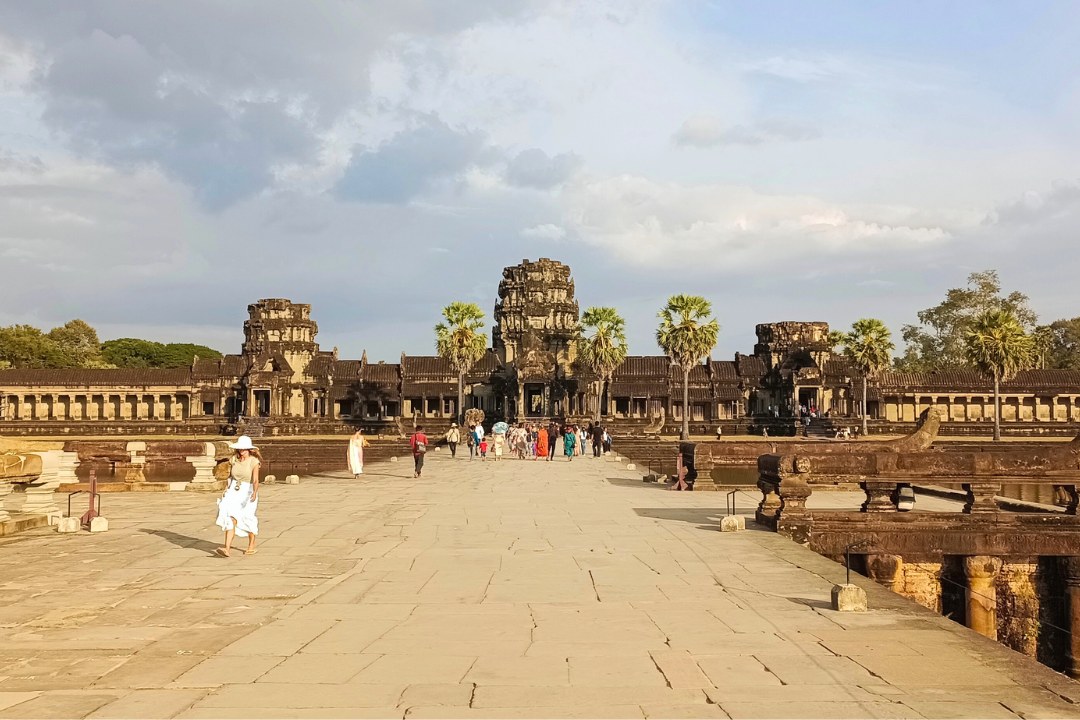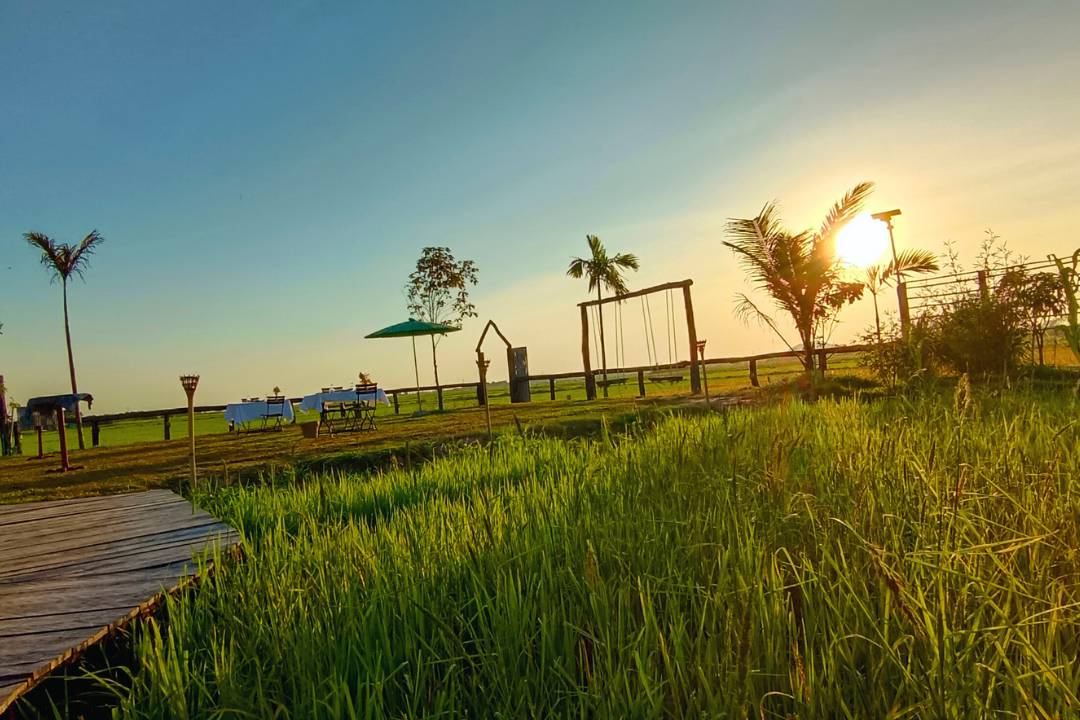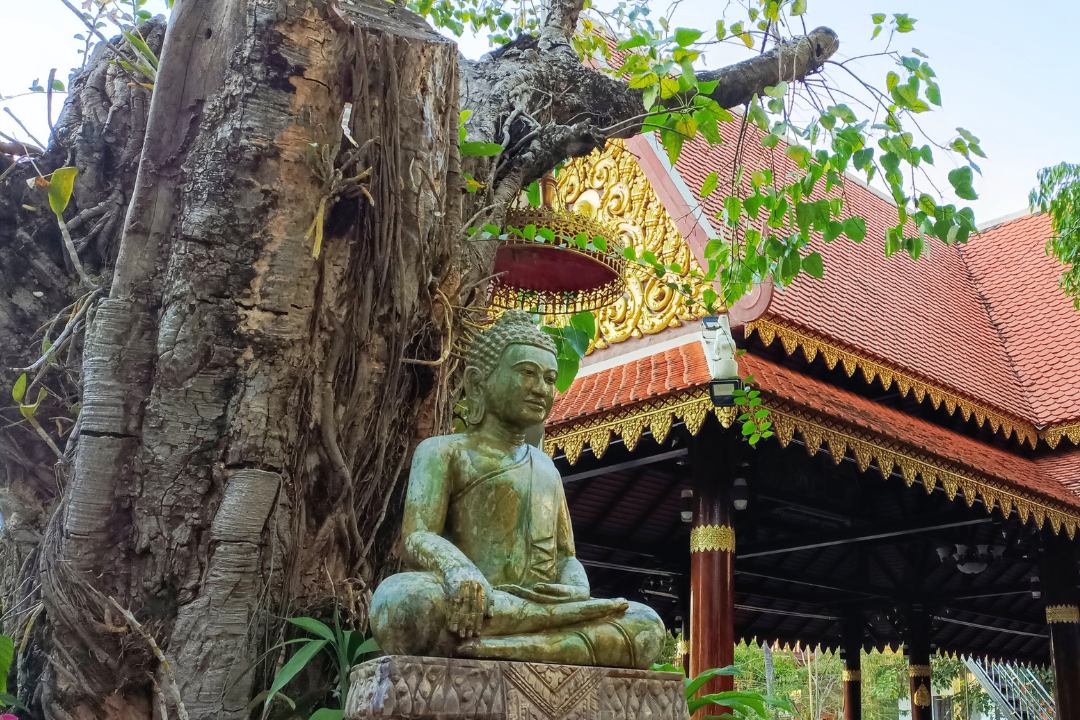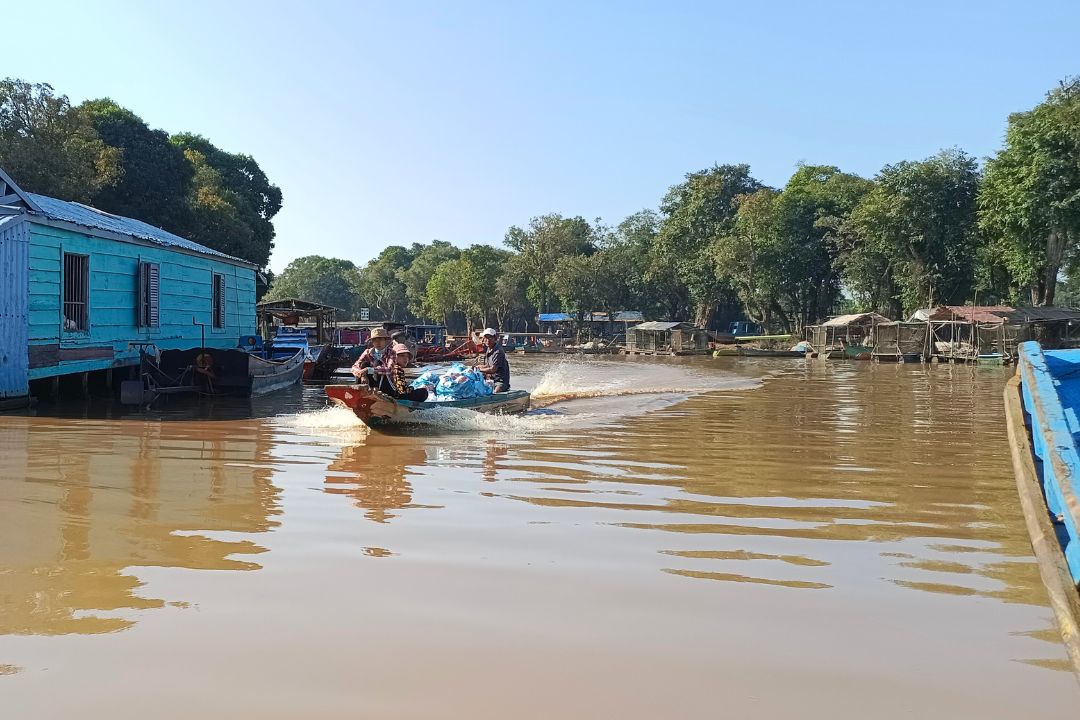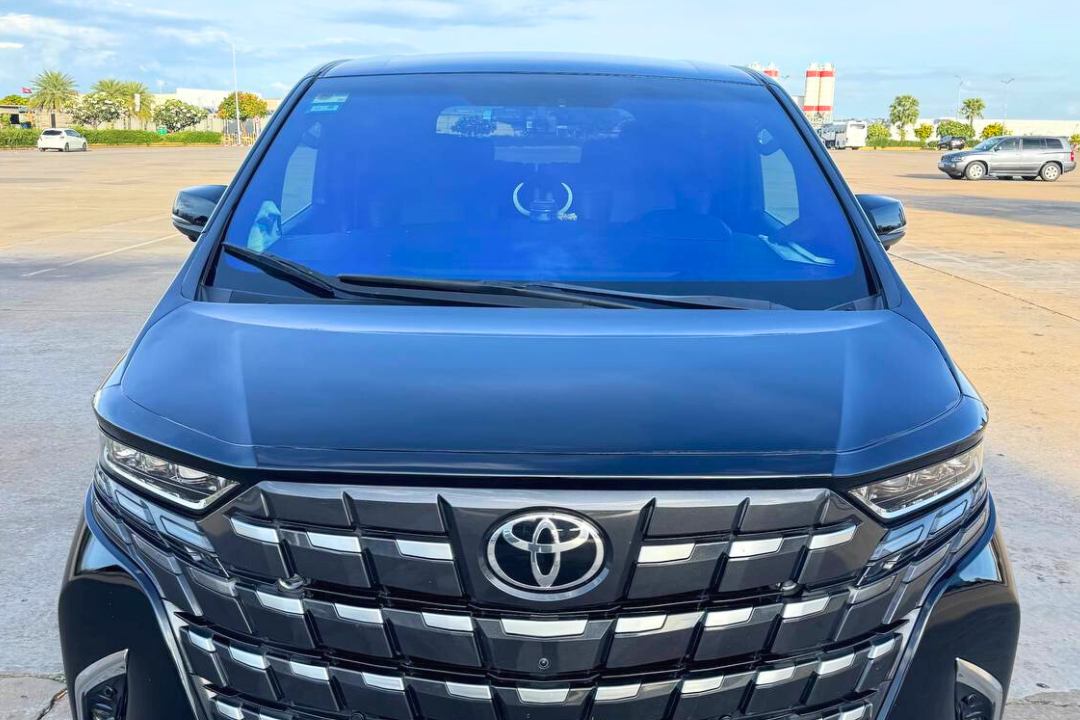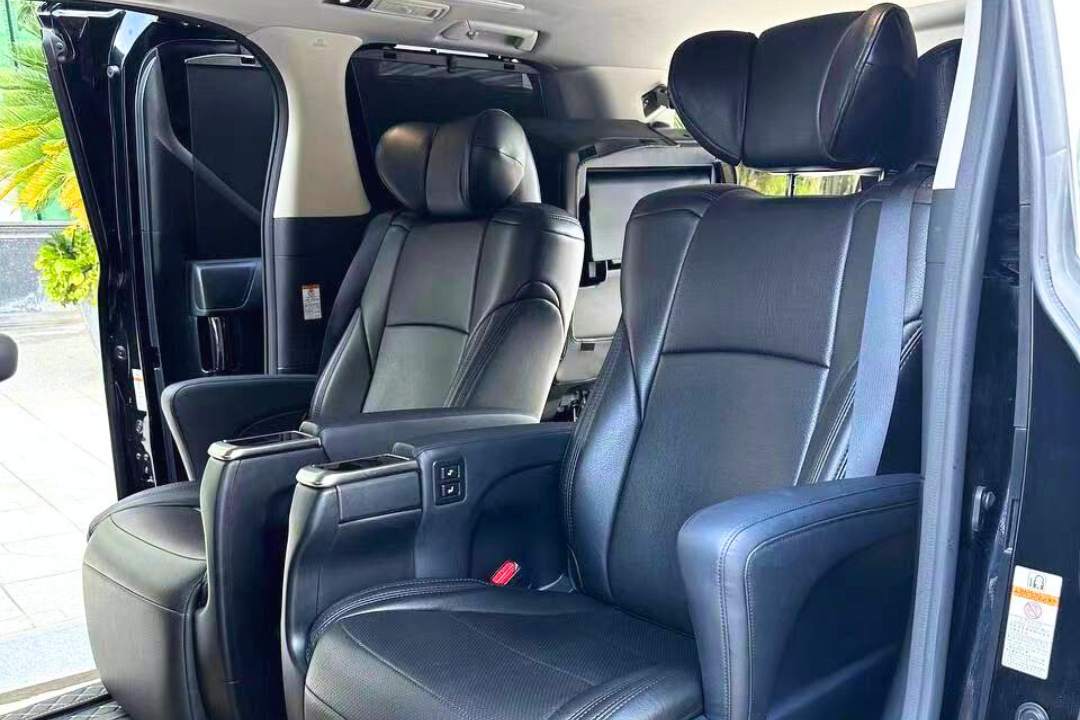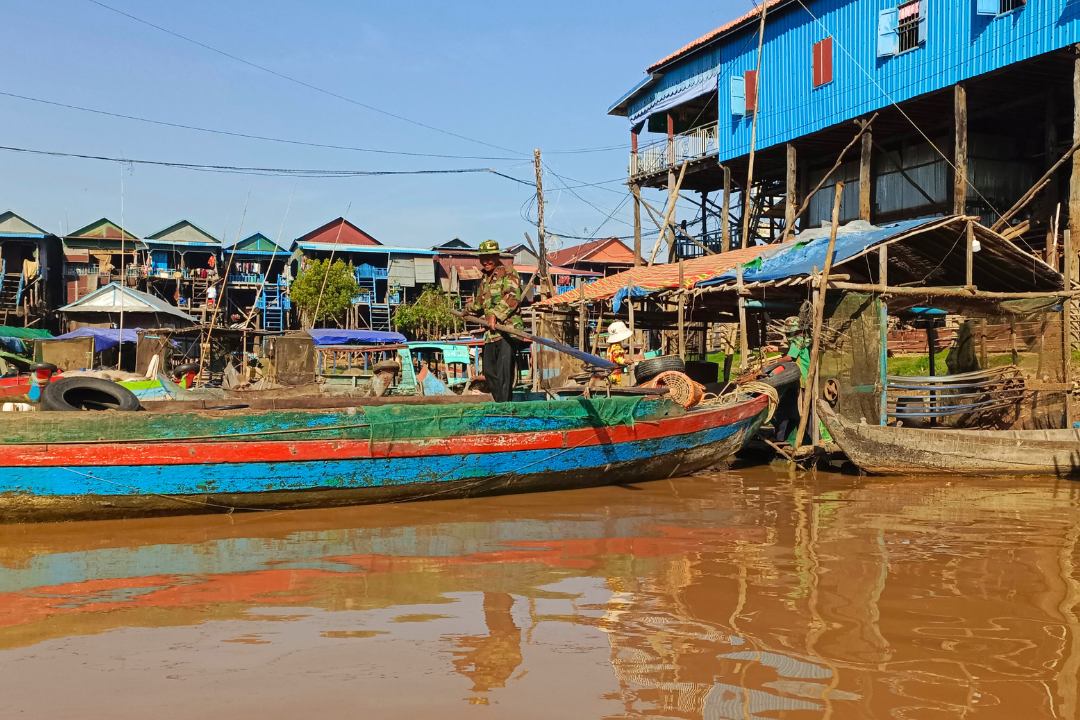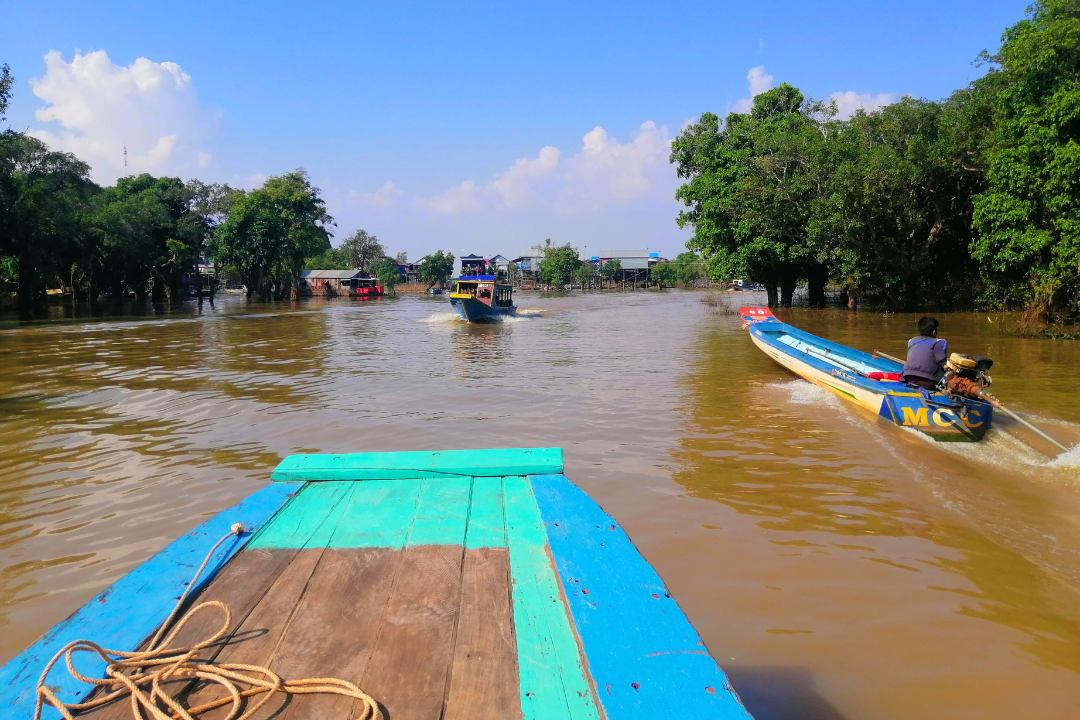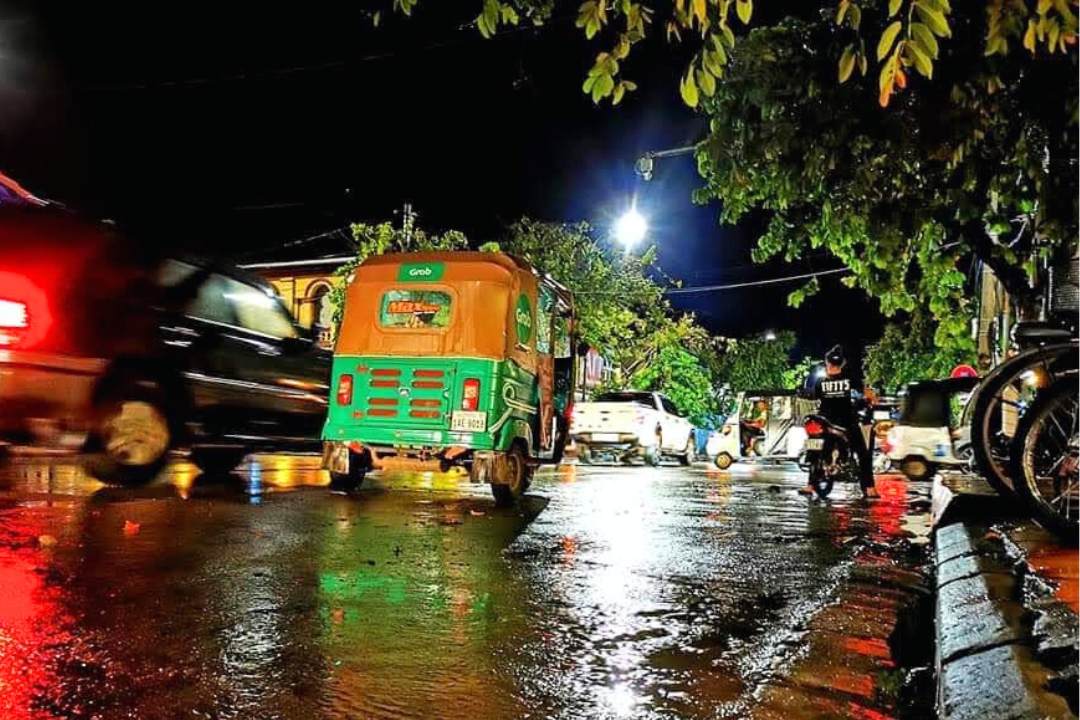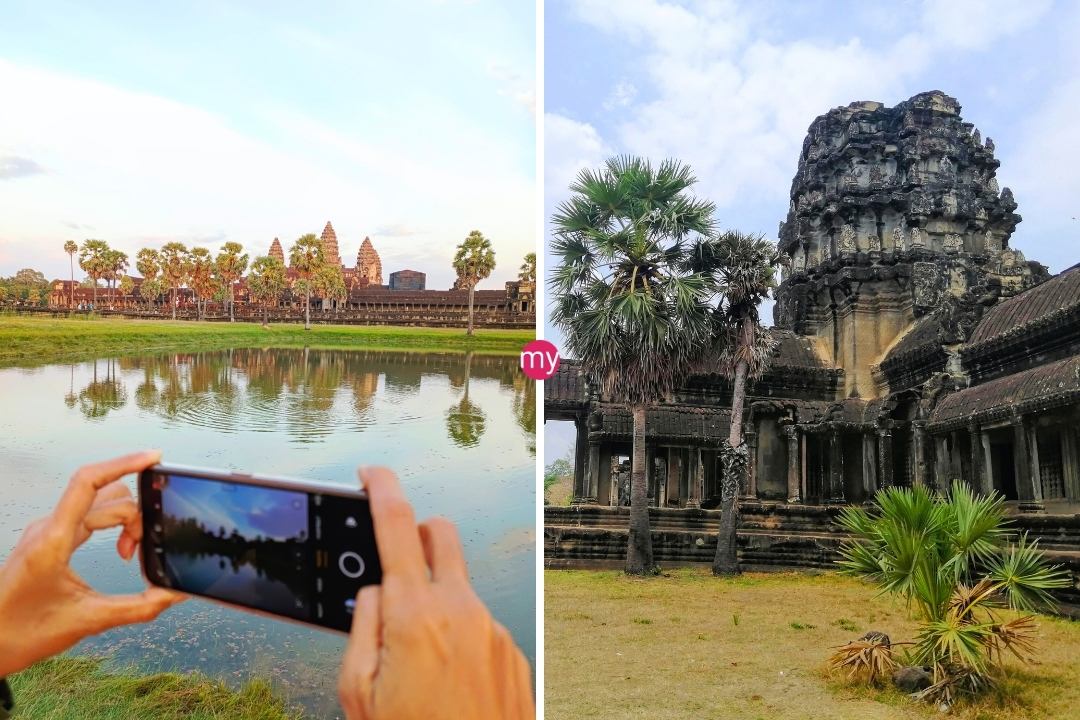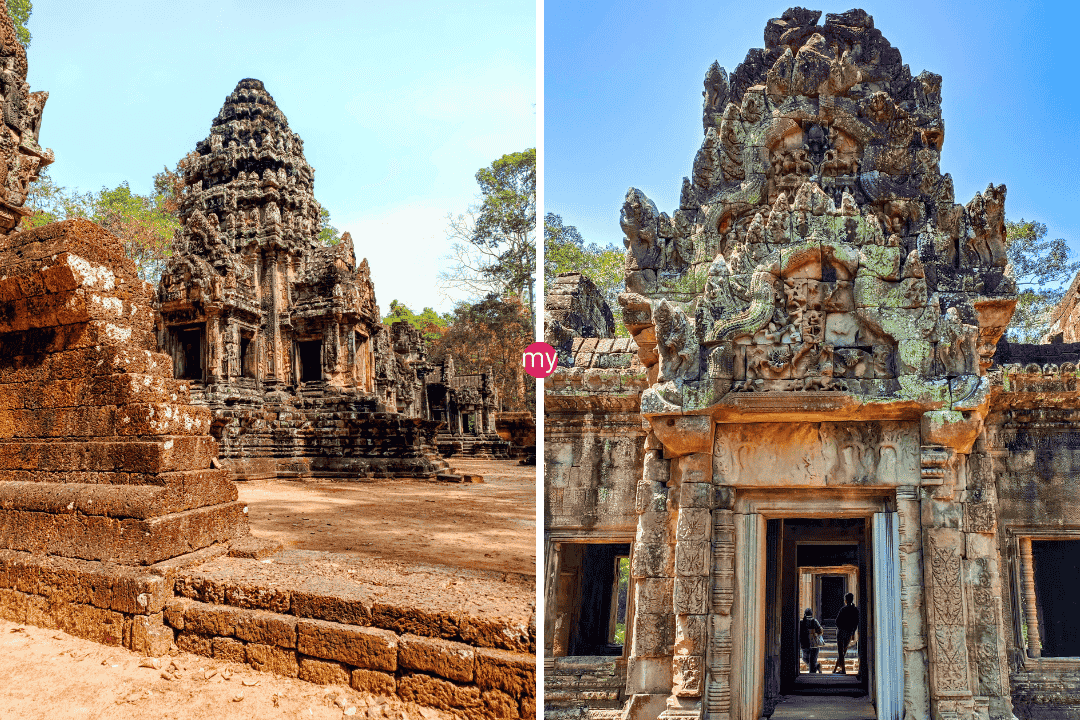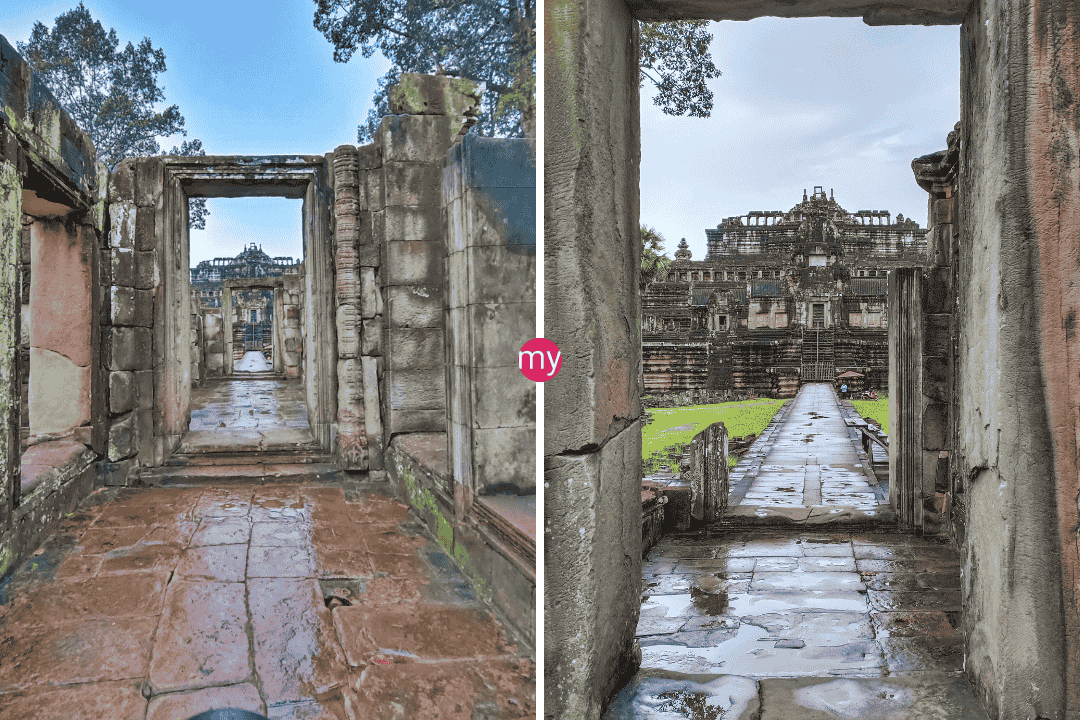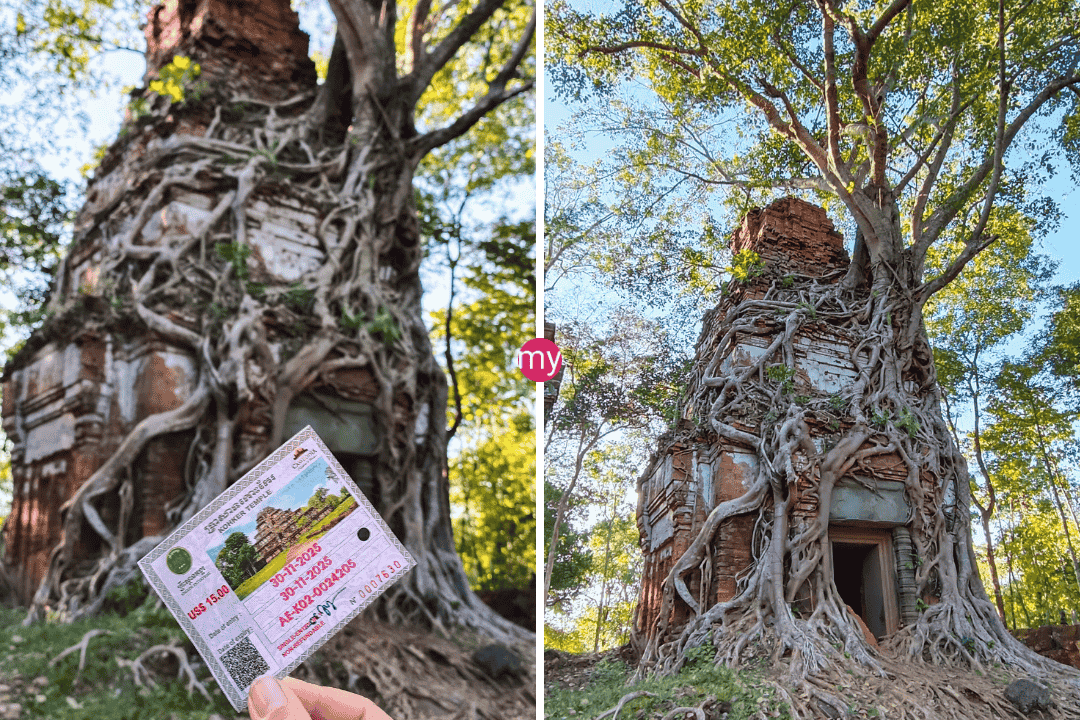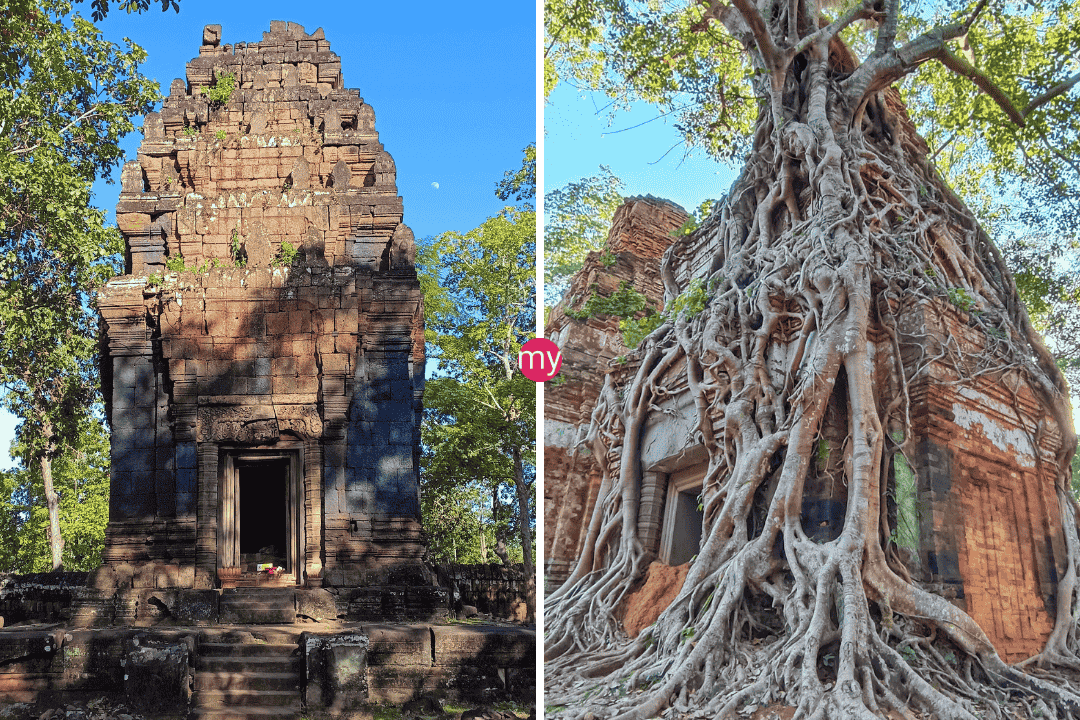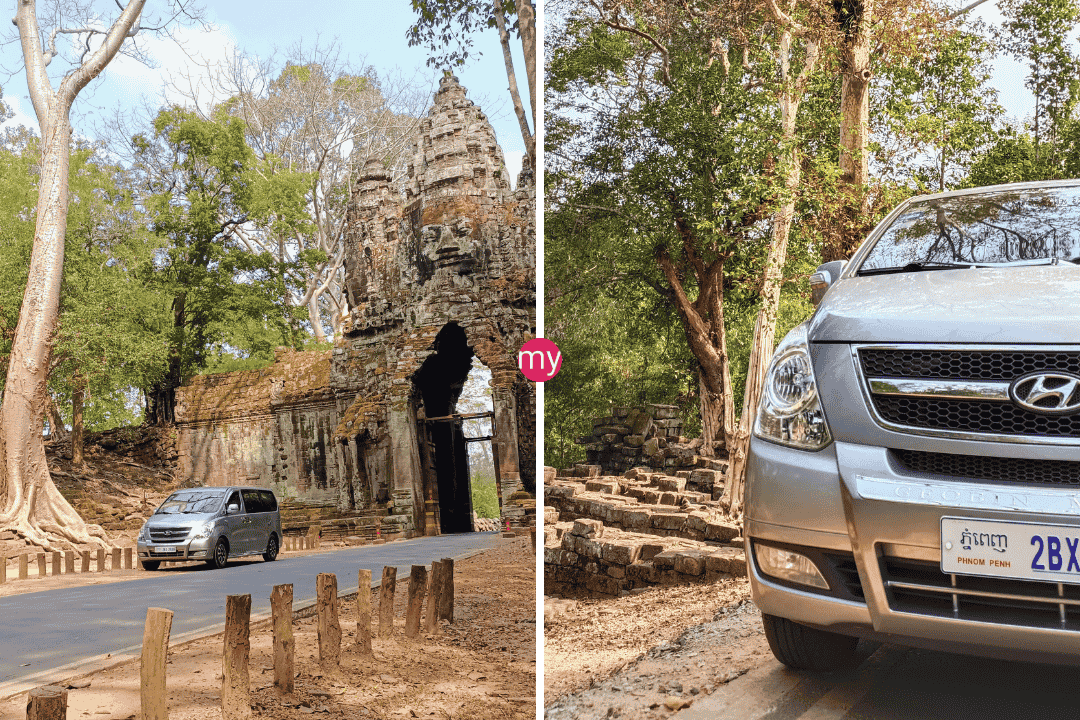8 Captivating Reasons to Take a Guided Tour of Bakong
Ever thought about the stories hidden in Cambodia’s ancient temples? Let’s explore together. In Siem Reap’s heart, the Bakong Temple complex shows Khmer Empire’s greatness. It’s an amazing place from the 9th century, honoring the Hindu god Shiva. Join me to dive into Cambodia’s amazing history.
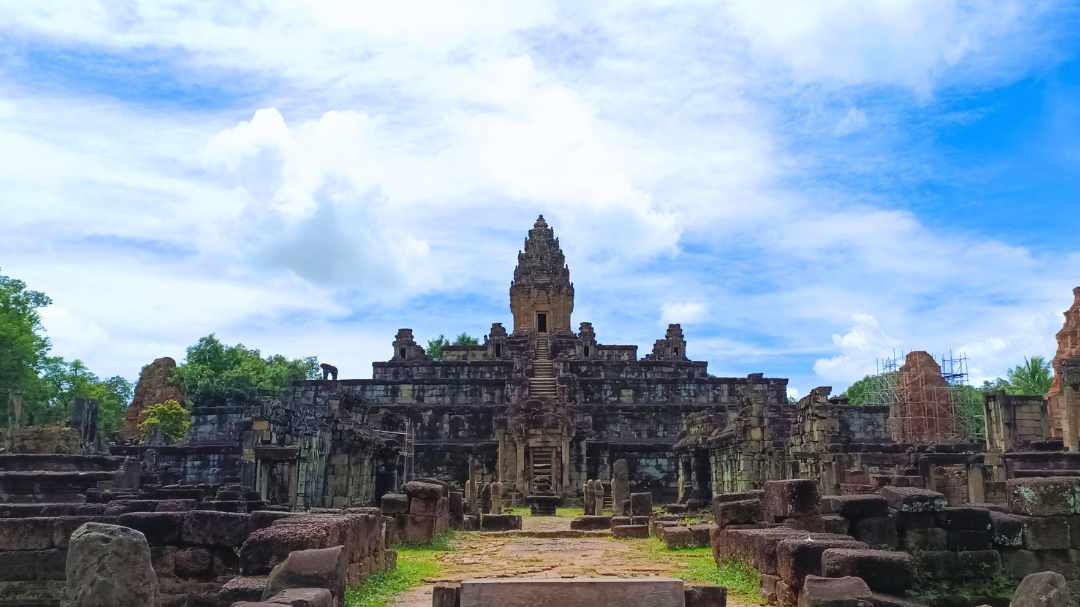
On my tour to Bakong, I was amazed by its details and meaning. It’s only 30 minutes from Siem Reap, perfect for a day trip. A guide adds so much, sharing stories of each part of the temple. It’s a must for those who love history and culture.
Bakong is just the start. There’s so much to see, from Preah Ko Temple to Tonle Sap Lake. Ready to see why Bakong’s tour should be top on your list?
Key Takeaways
- Bakong Temple is a 9th-century architectural marvel dedicated to Shiva
- The complex showcases intricate Khmer architecture and historical significance
- Guided tours provide in-depth insights into the temple’s history and culture
- Nearby attractions include other temples, markets, and natural wonders
- The journey from Siem Reap to Bakong is convenient and takes about 30/35 minutes
- Early morning or late afternoon visits are recommended to avoid crowds
Introduction to Bakong Temple Complex
I’m excited to share about the Bakong temple complex. It’s a key part of Khmer architecture in Angkor. This amazing place is in the town of Roluos, which is a short drive from Siem Reap.
Historical Significance of Bakong
The Bakong temple’s history is very important. It was built in 881 AD, making it the first sandstone temple mountain made by Khmer leaders. It was made for the Hindu god Shiva and changed the Khmer Empire’s faith in a big way.
Overview of the Roluos Group
The Roluos Group has many early temples, including Bakong. This area is very big, with Bakong measuring 900 meters by 700 meters. The nearby Prasat Bakong District is where 79,704 people live in 67 villages and 9 communes.
Architectural Features of Bakong Temple
The Bakong temple’s design shows Khmer creativity. It has:
- A five-tiered pyramid structure
- A central tower that’s 15 meters high
- Intricate carvings and sculptures
- A sandstone wall around it
For the best time, visit early morning or late afternoon. This is when there are fewer people. Getting a guide can help you learn a lot about the temple’s history and design.
| Feature | Measurement |
|---|---|
| Temple Complex Area | 900m x 700m |
| Central Tower Height | 15 meters |
| Distance from Siem Reap | 13 kilometers |
| Travel Time from Siem Reap | 30-45 minutes |
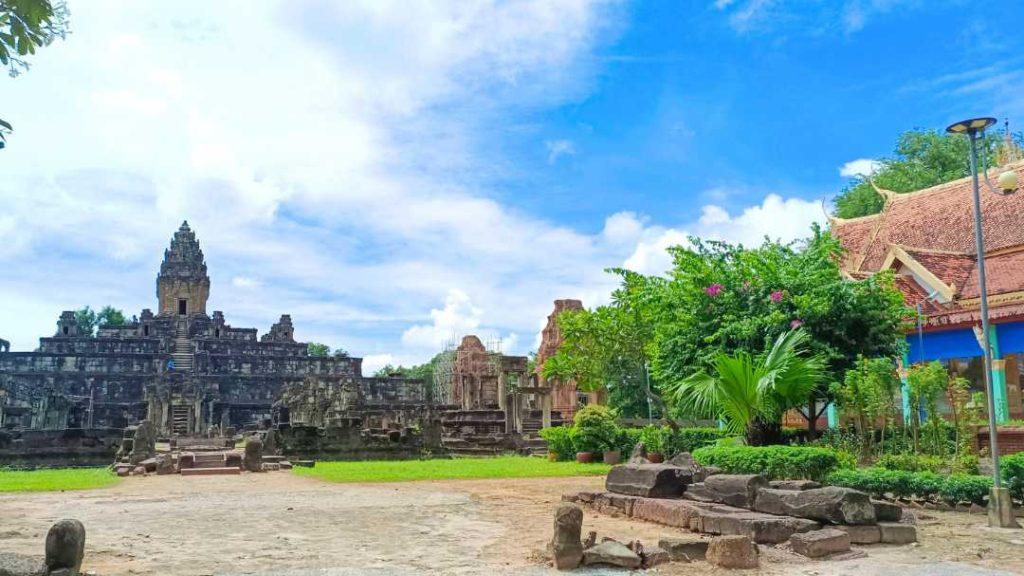
Unraveling the Rich History of Bakong
I’m excited to tell you about Bakong. It is key to Khmer empire history. This ancient temple complex shows us the past glory of the Khmer civilization.
The Founding of Bakong by King Indravarman I
King Indravarman I made Bakong in the late 9th century. It is one of the oldest temples in the Angkor Archaeological Park. The temple’s start was a big deal for the Khmer civilization.
Bakong’s Role in the Khmer Empire
Bakong was key in the Khmer Empire for power and worship. Inside is a sacred symbol of the Hindu god Shiva. This shows how important it was for religion.
The temple’s look is thanks to the clever Khmer architects and engineers. They built it with:
- Elephant statues at the base represent mythical Airavata elephants
- Lion guardians at the entrance show protection and power
- The temple is 15 meters tall and honors the Hindu god Shiva
Archaeological Discoveries at the Site
At Bakong, new finds help us know more about the Khmer empire. We found:
- Elaborate irrigation systems
- Ancient writings
- Items showing their daily life and religious ways
These discoveries show us how clever and advanced the Khmer empire was. The temple is not far from Siem Reap, which makes visiting easy for all who want to see it.
When I visit Bakong, I feel its lasting impact. It highlights the ancient Khmer people’s skills and creativity. It makes us want to learn more about this special time in Cambodian history.
Exploring the Intricate Khmer Architecture
Strolling through Bakong Temple, I saw amazing Khmer architecture all around. This old wonder spreads over 900m x 700m. It has three parts surrounded by moats.
The main pyramid at Bakong stands out, reaching 67 by 65 meters. It shows the smart building skills of its makers. This pyramid, finished in 881 AD, was the first of its kind. It was mainly made of sandstone blocks, changing how Khmer temples were designed.
Not far from the main pyramid, there are eight towers made of bricks. These towers are for different aspects of Shiva, called Murtis. With 22 other smaller temples between the moats, it’s an amazing scene. It makes you feel like you’ve gone back to ancient times.
- The inner enclosure surrounds a 400m x 300m area
- Four gopurams guard the temple complex
- A causeway adorned with seven-headed Nagas leads to the central structure
Going deeper, I found detailed carvings. They show Hindu gods, stories, and magical beings. These carvings share the old Khmer culture. They also show the temple’s importance as a religious and architectural place.
The best time to see Bakong is during the dry season, from November to April. Then, the skies are clear and everything is easier to see. It makes the temple’s beauty and carvings look more amazing.
Bakong Temple shows how clever Khmer builders were. They mixed religious meanings with smart building ways. This temple’s lasting charm keeps showing the might of the Khmer Empire.
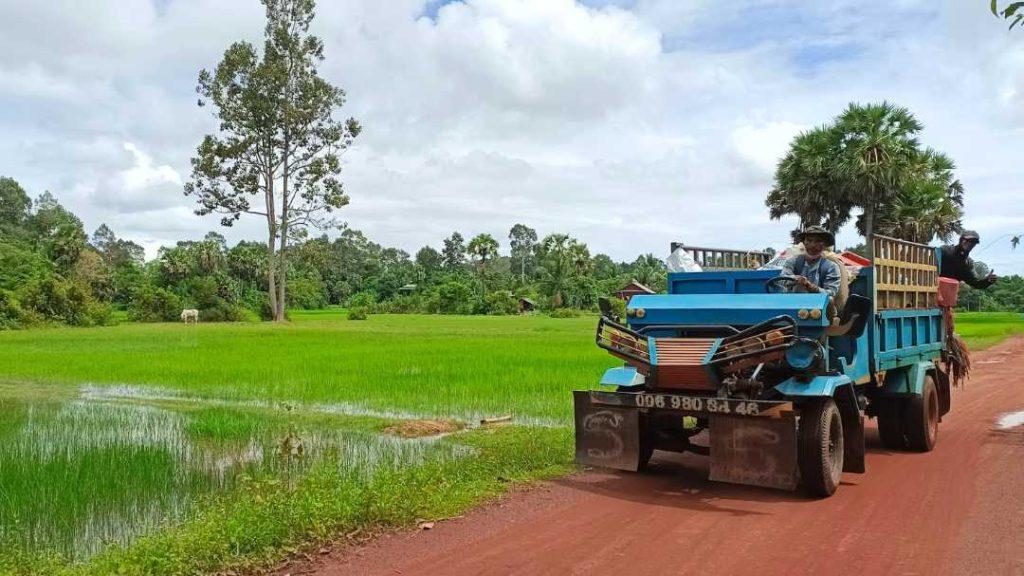
The Guided Tour of Bakong Experience
I’ve found that a guided tour of Bakong is very special. It’s an ancient temple, made in 881 AD for Shiva. It shows Cambodia’s deep history.
Benefits of Having an Expert Guide
An expert guide made Bakong come alive for me. They explained the temple’s unique design and its meaning. Bakong is a five-level pyramid that is 65 x 67 meters at the bottom.
They showed me hidden gems, like stone statues of elephants. These discoveries made my trip more than just looking around. It became a journey into Khmer history.
Typical Tour Itinerary
A Bakong tour lasts 45 to 60 minutes. It’s perfect for seeing the 900 x 700 meter site. Here’s what I saw:
- Arriving early in the morning to see the site better
- Checking out the three concentric enclosures
- Seeing the central temple pyramid
- Visiting the eight brick temple towers inside
- Talking about the 1930s reconstruction
Insider Knowledge and Local Insights
The tour gave me cool local info. I learned about the temple’s groundbreaking design. It was the first to use the temple-mountain idea in Angkorian architecture.
My guide also talked about the carved stucco battle scenes. This art showed me more about Khmer culture and art. These insights made Bakong even more special to me.
| Tour Feature | Details |
|---|---|
| Duration | 6 hours (6:30 AM – 1:30 PM) |
| Group Size | Maximum 9 people |
| Inclusions | Luxury minivan, English-speaking guide, refreshments |
| Highlights | Bakong, Lolei, Preah Ko temples, local market visit |
| Special Features | Cultural immersion, photography opportunities |
This tour mixes history and culture just right. It includes great transport and extras like chilled towels. It’s a memorable experience for me.
Discovering the Surrounding Temples
A journey through the Roluos group temples is like stepping back in time. I see amazing buildings at Bakong Temple. They show off Cambodia’s long history.
Preah Ko Temple
Preah Ko temple praises the Hindu god Shiva. It shows great work by early Khmer people. Six brick towers have detailed carvings. They show the Khmer Empire’s growing style.
Prasat Lolei
Prasat Lolei is special because it’s on an island. The temple is very old, but still beautiful. I love seeing its ancient stories written in stone.
Wat Roluos
Wat Roluos is different from the others. It’s a new Buddhist temple near old Angkor sites. It links today’s Cambodia with the past.
Seeing these temples makes me understand their history better. The Roluos group has four key temples, with Bakong as the main one. Preah Ko’s carvings are just as amazing as Bakong’s temple mountain style.
A tour of these temples takes about 8 hours. This lets me enjoy their history and beauty a lot. I am amazed at the Khmer Empire’s strong influence over Southeast Asia.
Keeping these places nice is very important. We must save these links to the past. After visiting, I feel lucky to see these ancient Khmer sites. They are truly special.
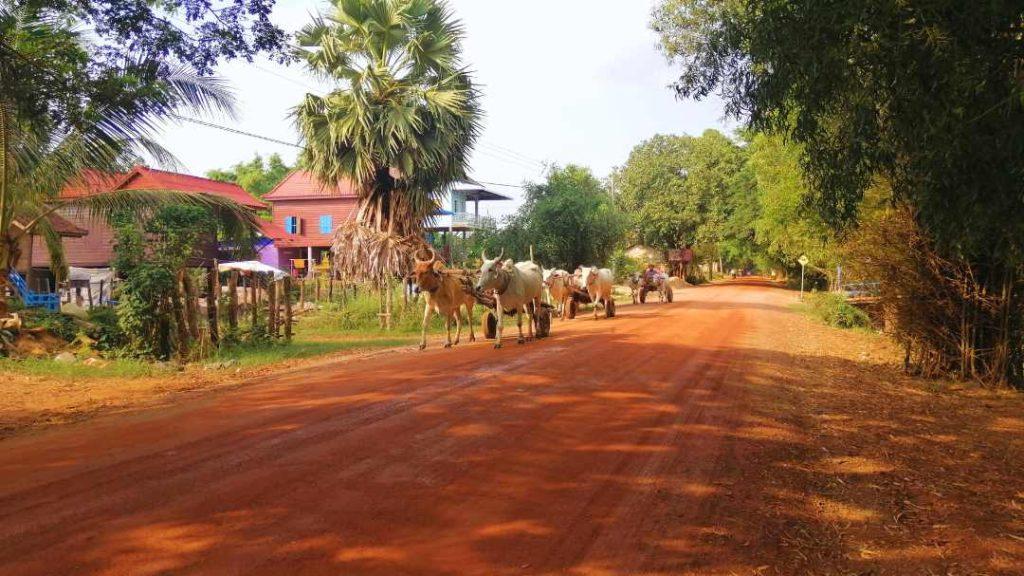
Immersing in Local Culture and Traditions
A guided tour of Bakong lets visitors dive into Cambodian culture and Khmer history. It’s a place where old and new traditions meet and blend beautifully.
The Bakong temples mix Indian ideas with local designs, showing Hindu gods in a unique way. This blend made a big start in Cambodian temple making, inspiring many. Ongoing work keeps this place special as a UNESCO World Heritage Site, saving it for others to enjoy.
I watch daily religious acts at a modern pagoda close by. The temples are spots where Buddhists go to practice their faith. Talking with monks helps me know more about their spiritual lives, teaching me a lot about their traditions.
- Visit a local village to see traditional crafts
- Try real Cambodian food
- Join in a traditional blessing
- Learn some Khmer to talk to people
We’ll also see other temples like Preah Ko and Prasat Lolei to learn more about the area. A trip to the market shows us daily life and lets us buy local handmade things.
My 3-day tour includes meeting folks from nearby villages. This lets me really get to know the area, seeing 40 km of its special places.
I learn a lot on this tour, making great memories and loving Cambodian culture even more. The mix of temple trips, talking with locals, and traditional actions is really special. It teaches me so much about this beautiful place.
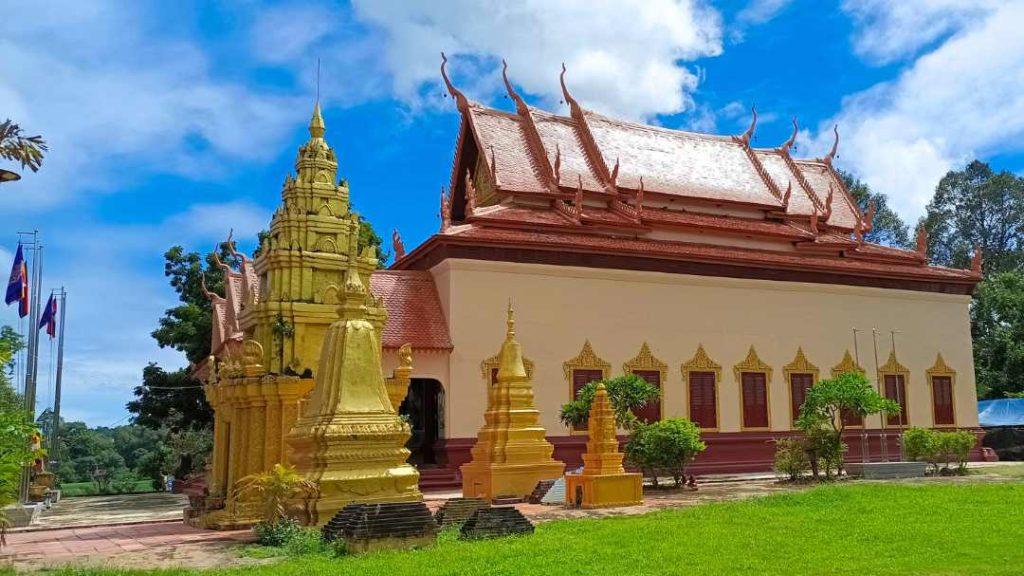
Beyond the Temples: Nearby Attractions
I found amazing Cambodian sites near Bakong. They mix history, culture, and local life well.
Ro Lus Market
Ro Lus Market is full of life. It shows off fresh foods, crafts, and Cambodian items. Walking around, I saw daily life up close, full of energy.
Roka Pagoda
Next, I visited Roka Pagoda, a colorful temple. Its designs and quietness were different from the old ruins. I saw people pray and learned about new Buddhist ways.
Tonle Sap River and Lake Boat Cruise
My boat trip on the Tonle Sap River was the best part. I saw floating villages and amazing nature scenes. The beauty of Cambodia filled me with wonder.
Nearby spots add to the temple visits. The Roluos Temples are calm and less crowded than Angkor. It’s good for those who want a peaceful visit. Each temple needs 3-4 hours, letting you enjoy other places too.
Interested to see more? Siem Reap has many temples from the 9th to 14th centuries. You can buy passes for 1, 3, or 7 days, fitting your plan and what you like.
Visiting temples along with markets, modern pagodas, and nature taught me a lot. Cambodia’s culture and nature shined every step of the way.
Photography Opportunities at Bakong
Bakong Temple has many chances for temple photo lovers. It’s big, covering 15 hectares, so there’s plenty to snap.
Best spots for capturing the temple’s beauty
Here’s where you can find great picture spots:
- The central pyramid structure, standing 14 meters tall
- Eight brick towers dedicated to Shiva’s aspects
- Intricate carvings on sandstone blocks
- Reflections in the surrounding moats
The main temple is really big, at 67 by 65 meters. This size is perfect for big shots.
Ideal times for photography
To get great light, go to Bakong early or late. The temple is open from 7:30 AM to 5:00 PM every day. You have lots of time to get amazing photos. The sun makes the sandstone look magical in photos.
Tips for photographing ancient architecture
Ready for some tips to make your visit memorable?
- Use a wide-angle lens to show the big temple
- Zoom in to capture the fine details
- Try long exposures for deep, calm photos
- Put people in your photos to show how big the temple is
- Look for unusual angles for special pictures
Don’t forget comfy clothes, bug spray, and water. These tips will help make your temple photos stunning.
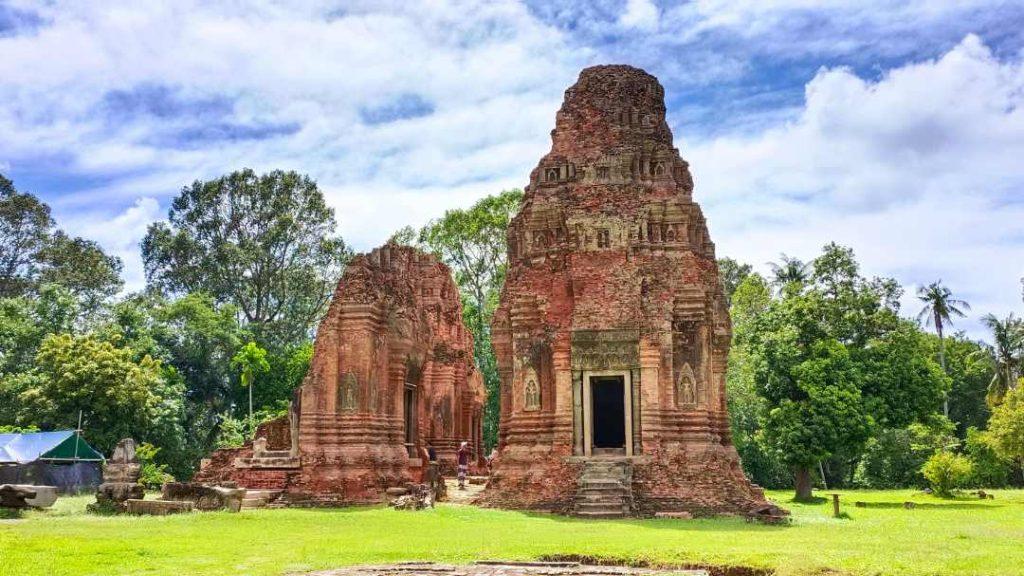
A Bakong guided tour is really special. Bakong is the first sandstone temple mountain in Siem Reap. It shows off Cambodia’s amazing historic buildings. You learn a lot about the Khmer people’s past and their ways of building.
You see not just Bakong, but also Preah Ko, Prasat Lolei, and Wat Roluos. This helps you really understand the Roluos Group. A three-day tour shows you big temple sites and the calm Tonle Sap River. You get a good look at Cambodia’s culture and history.
The tour also lets you mix with Cambodian life. The Ro Lus Market and Roka Pagoda are real eye-openers. Finally, a boat trip to Kampong Pluk floating village is the perfect ending. It shows off nature and culture at the same time. This tour is great for anyone who loves history and exploring.
Related and Useful Links Box
- Bakong Temple – Uncover The Majestic Beauty Of Roluos Group
- Bakong Temple
- Prasat Bakong District – Visit Siem Reap
- Bakong Temple – Comprehensive Guide to Reluos Group
- Cracking the Mysteries of the Roluos Group Temples: A Siem Reap Traveler’s Guide
- Private Roluos Temple Tour | A Gorgeous Tour of the Ancient Bakong
Featured
Explore more on My Siem Reap Tours
Koh Ker and Beng Mealea guided tour | Banteay Srei temple tour semi-private guided tour | Angkor Wat Sunrise shared tour | Koh Ker and Beng Mealea guided tour | Morning Siem Reap floating village tour | Afternoon Siem Reap floating village tour | Private Angkor Wat special tour | Kulen Waterfall small group guided Tour | Private Angkor Wat mix temples photo tour
